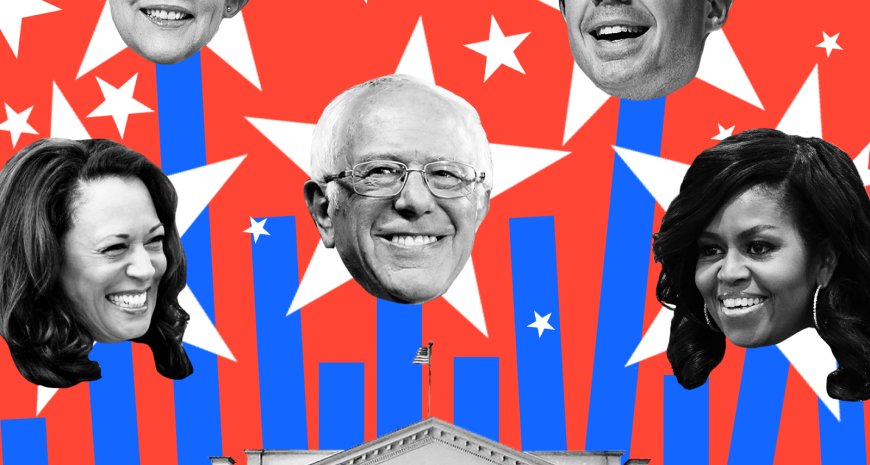This article originally appeared on our substack
Last week, I shared the bottom half of my top 10 Democratic contenders in a Biden-less primary in 2024. This week, I’m sharing the top five.
Again, this isn’t a list of my favorite candidates; it’s a reflection of who I believe has the best chance to lock up the nomination.
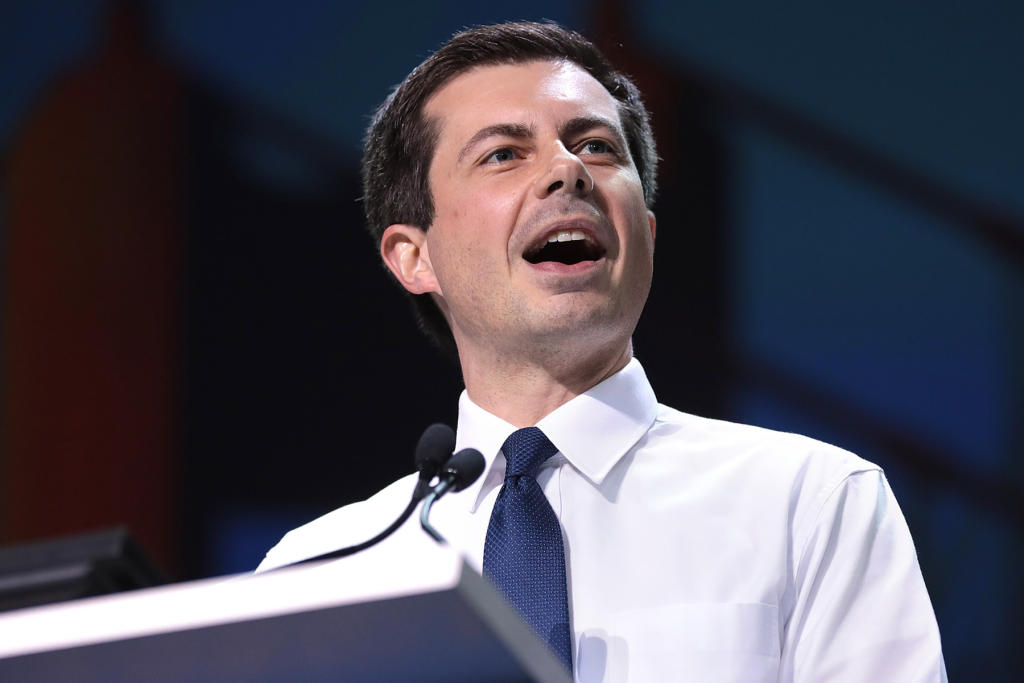
5. Mayor Pete
Mayor Pete came out of seemingly nowhere in 2020 to capture first place in the Iowa caucus. During the height of that campaign, as he was soaring, I was invited to attend a closed-door meeting that Mayor Pete held with some of New York City’s most prominent African American leaders. (Don’t ask how I got that invite.) In that room, he faced blistering criticism over his handling of policing and race as the mayor of South Bend along with general skepticism of his lack of experience. His performance that day was among the most incredible displays of poise and confidence I’ve ever seen in politics. He was told point-blank that he wouldn’t get the support of the people in the room, that Black voters in the South wouldn’t support a gay man, and that he was “no Obama.” Again and again, he smiled and earnestly explained why he believed he could win.
Of course, he didn’t win. He faded shortly after that meeting, just as many of those leaders predicted. To his credit, ever since that loss, he’s wasted no time in addressing his vulnerabilities. He’s checking the experience box as Secretary of Transportation, and he’s used his position to try to build credibility with the Black community, most notably with a $1 billion commitment to remedy racial discrimination in public works.
A look at the 2020 crosstabs shows just how steep his climb will be. Despite being the youngest candidate in the race, he lacked appeal with youth voters, coming in fourth with those under the age of 30. His standing with Black voters was so poor that he earned just two percent of the Black vote in the critical South Carolina primary, a showing so bad that it forced him to drop out of the presidential race a few days later. The media was fond of comparing Mayor Pete to Obama, but 44 owed his victory to voting blocs that Pete struggles with.
If this were a power ranking for VP choices, he’d be my #1. He’s a formidable fundraiser with a mind for policy and a gift for storytelling. But until he widens his appeal beyond college-educated Whites, he won’t be able to deliver on Super Tuesday.
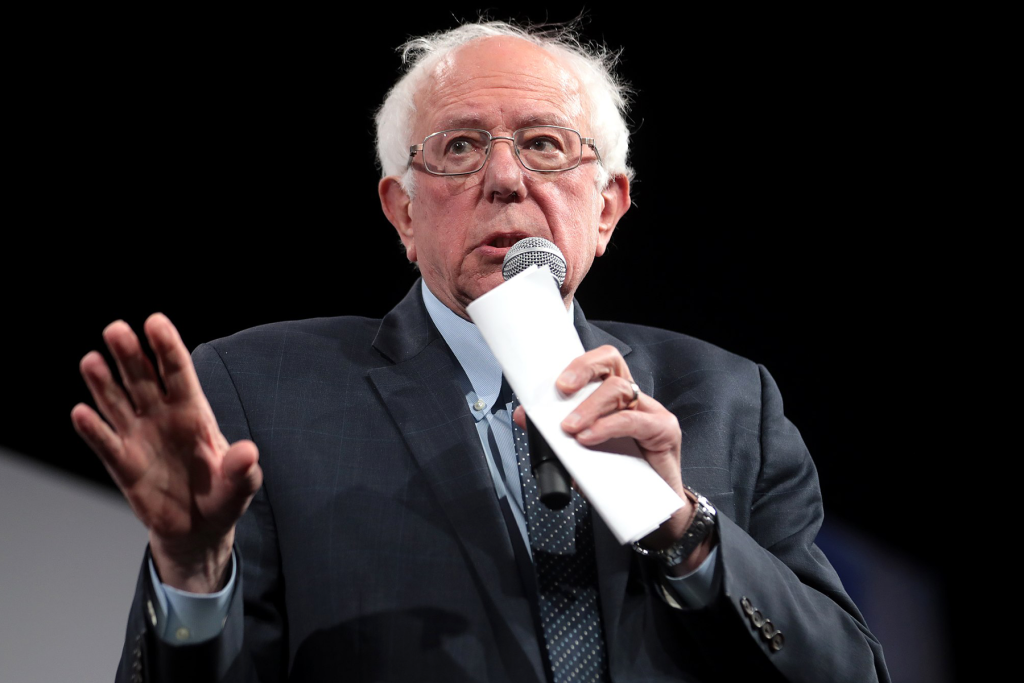
4. Bernie Sanders
What to make of the two-time runner-up? He should theoretically face the same age concerns as Joe Biden. He’s even older, yet he somehow garners tremendous support from young voters, earning an incredible 76 percent of the under-30 Democratic electorate: more total voters in the 2020 primary than Trump and Clinton combined. This is great news for Bernie, as Millennial and Gen Z voters may play a dominant role in 2024.
But the youth vote is neither static nor a monolith. There’s a ton of evidence that younger voters in 2020 were more motivated by ideology than style. Poll after poll showed they were more favorable towards socialism than capitalism. But recent evidence seems to suggest that Gen Z voters may be more skeptical towards socialism than the younger Millennials who dominated the 2020 youth vote.
What about the electorate at large? Recent elections from New York City to Buffalo to San Francisco seem to suggest that significant pockets of Democratic voters are having second thoughts about the far left. That skepticism seems to be coming in large part from communities of color, who’ve long been a challenge for Bernie. He took home just 14% of the Black vote in the 2016 primaries and lost to Hillary in 10 of the 11 states where Latinos comprised a sizable share of eligible voters. He didn’t fare much better with Black voters in 2020, garnering just 17% of the Black vote in the critical South Carolina primary, but he did significantly increase his standing with Latinos, who helped keep his campaign alive on Super Tuesday and beyond. If he’s to have a shot in 2024, he’ll have to hold those gains with Latinos and match that progress among Black voters, too.
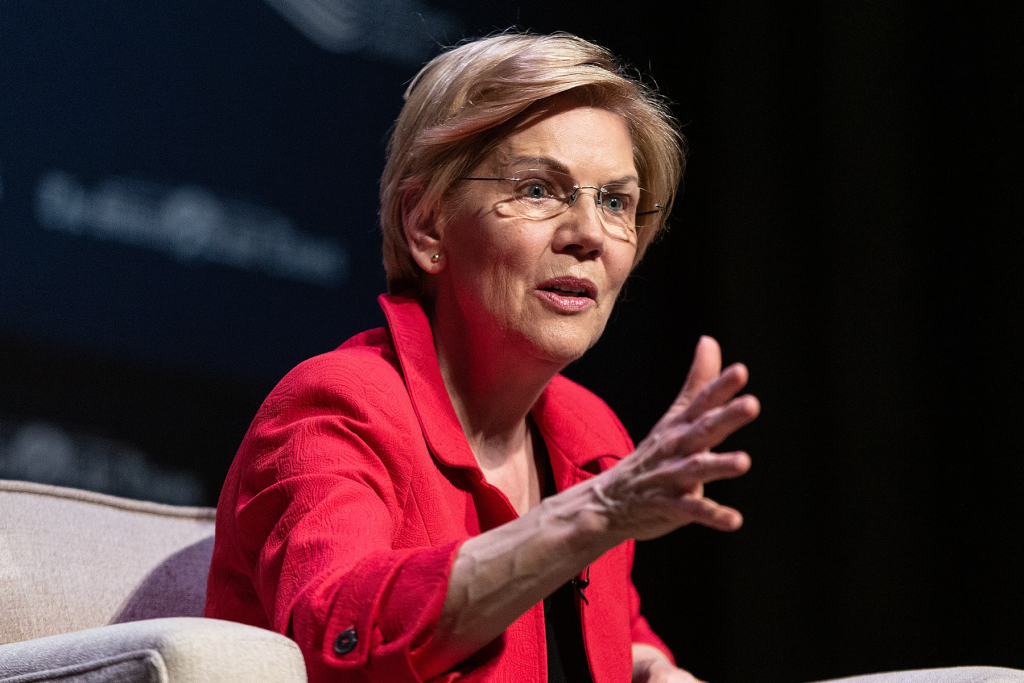
3. Elizabeth Warren
Elizabeth Warren was everywhere in the years leading up to the 2020 election. She was barnstorming the country endorsing candidates, releasing white papers, and appearing on TV. She seemed to dominate conversations over the direction of the party, and even led early state polls during the opening stretches of the primary race. Her candidacy failed for reasons that echo Mayor Pete’s challenges (underperforming with lower income voters and voters of color) and Bernie’s (fear over tacking left in a race against Trump). Ever since she bowed out of that primary, she’s been noticeably absent from the national stage.
To be clear, Warren hasn’t slowed down; she appears to be working just as hard she was before. Yet she no longer commands nearly as much attention from the press and activists. With Manchin in the driver’s seat over legislative policy, Warren’s bold ideas seem unrealistic, at least in the near term. It’s also possible that her perceived blunders around her heritage and health care plan are still fresh in voters’ minds.
In years past, few progressives matched her policy ambitions or her energy to sell them. Now, she faces a large and growing contingency of rising stars in the party further to her left, most notably AOC, a magnet for press coverage who can spur hundreds of headlines with a single tweet.
The good news for Warren is that those up-and-comers don’t look poised to run for president any time soon. She may have to deal with lesser-known members of the Progressive Caucus, like Rep. Ro Khanna, but, once again, her biggest competitor for the deep blue vote is probably Bernie.
After the 2020 primaries, there was a theory making the rounds that if either Bernie or Warren had dropped out and endorsed the other, the last progressive standing would have beaten Biden for the nomination. Sanders voters made this case, but his advisors repeatedly threw cold water on that notion, arguing Bernie’s coalition was lower income and more diverse whereas Warren largely pulled from wealthier, college-educated voters. Early in the primary, Politico looked at the coalitions for each candidate and largely confirmed what Sanders’ team had to say. But I still wonder what would have happened if one of them had dropped out and endorsed the other. They already had a non-aggression pact, which was a tacit admission that they at least shared enough in common to reach an alliance of sorts.
I essentially have Bernie and Warren tied, even considering their different strengths and weaknesses. It’s hard to see either of them winning with the other in the race. However, the tiebreaker goes to Warren on the basis that she’s eight years younger than Bernie. She’s not exactly young either, of course, but that could still be a decisive gap with an electorate seemingly fixated on age.
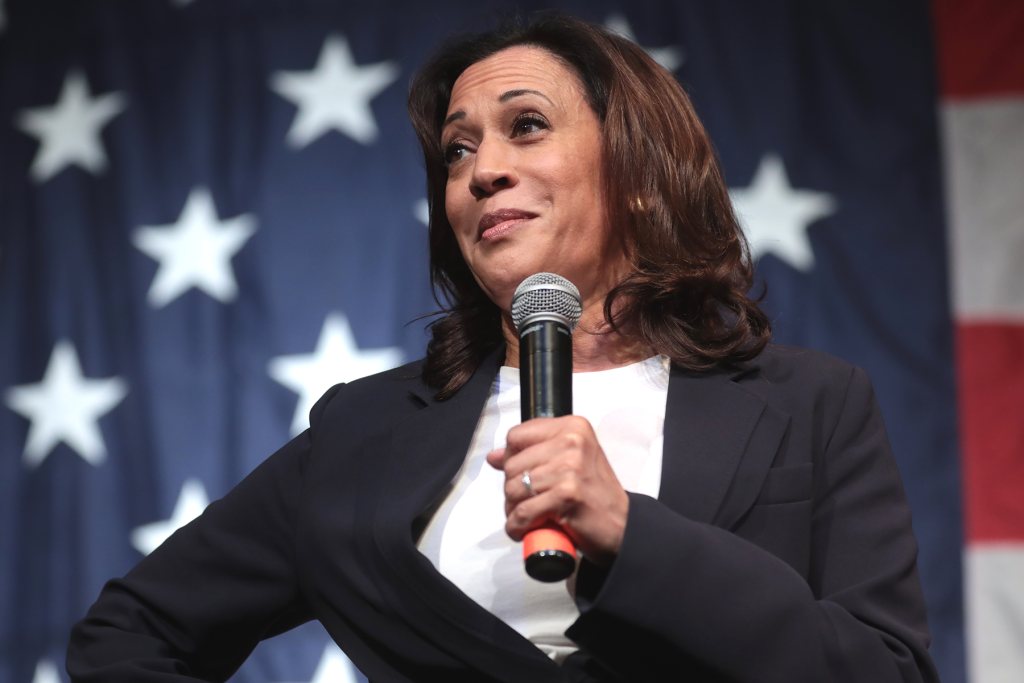
2. Kamala Harris
I have Harris ranked high for one simple reason: history is on her side. Every Democratic Vice President since the 1950s has won the nomination for president.
That’s where the rationale for her candidacy ends. Her approval rating has often been worse than any modern Vice President and she’s even less popular than Biden, who is in historically bad territory.
Her own staffers don’t seem too optimistic about her future. Harrisland has seen a wave of exits over the past year, including her chief of staff, deputy chief of staff, chief spokesperson, communications director, deputy press secretary, director of digital strategies, speechwriting director, and national security advisor. This followed a long trail of press accounts, going back to her 2020 primary campaign, of Harris presiding over a hostile and chaotic workplace.
Even Harris’ most ardent supporters have trouble answering what should be an easy question: what does she stand for? Her most notable life experience before national politics was as a fairly traditional law and order prosecutor. But once she started jockeying for the nomination, she tried to reframe herself as a “progressive prosecutor,” a rebranding that Professor Lara Bazelon convincingly and thoroughly dismantled in the pages of the New York Times. In the administration, her most high profile responsibility has been the surge of migrants at the southern border—an issue that seemed to disappear from her schedule just as it reached a crisis point—leading to an awkward exchange with NBC’s Lester Holt followed by a “hastily put together” trip to El Paso.
Harris supporters argue that she hasn’t gotten support from Biden and his team. This is nothing new; almost every Vice President in history has made this complaint. Her supporters also claim the border was a quagmire from the start. But I’d ask: what’s the easy issue this White House has faced? Inflation? Afghanistan? Ukraine? Climate change? Manchin?
The key question for Harris and her fast-dwindling team will be how she addresses calls for Biden to announce he won’t run. It’s possible she’ll try to create some distance between herself and the president without appearing disloyal. How she fares with that tightrope act could determine her future.
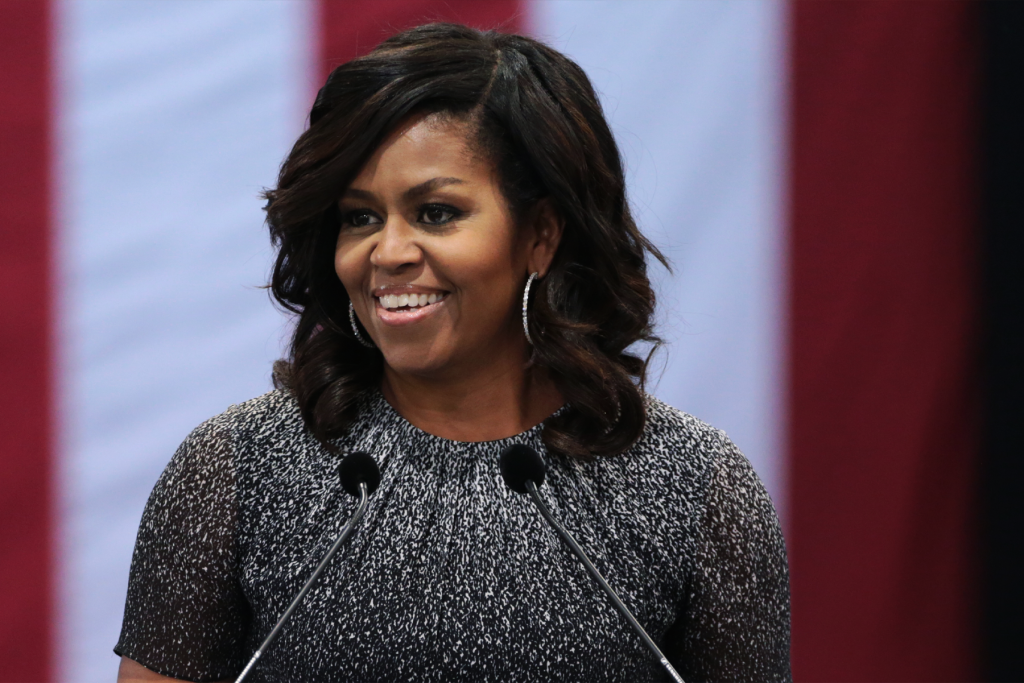
1. Michelle Obama
Do I believe Michelle Obama will run for President? No. She’s made it very clear she has no intention to.
Then why do I have her listed number one? Because if she did decide to run, there’s no one who could beat her. In a sense, this would be like me ranking NBA players entering the 1999 season. Jordan made it clear he was done with the game of basketball, but he still would’ve been the best if he decided to lace them up again.
Why do I have such faith in Michelle? She’s deeply popular within the party and the general public – repeatedly ranking as the “most admired woman” in American society. There are few people in public life who are able to connect their personal story to the journey we are on as a nation. That’s why her book sold more than 17 million copies.
Here’s one of America’s most famous people
“I really believe if Michelle Obama runs, she wins. . . She’s great, she’s intelligent, she’s articulate, she’s the wife of the best president that we have had in our lifetime in terms of like a representative of intelligent articulate people.”John Doe
Who is this mystery commentator? Jon Oliver? Chelsea Handler? David Axelrod? No, that is Joe Rogan, speaking on his podcast this past December. Name me someone else who can appeal to eclectic independents like Rogan while also captivating the Democratic base. Some would say Bernie, but, as I described above, he’s failed time and again to carry key portions of the Democratic electorate.
As I wrap up this exercise, I come back to a stubborn belief: I can’t accept a 2024 field that resembles what we had in 2020. The world—and the party—has changed too much. Maybe it will be Michelle, or maybe it will be some totally unexpected juggernaut. But if Democrats roll out the same old hits, nobody will listen.
